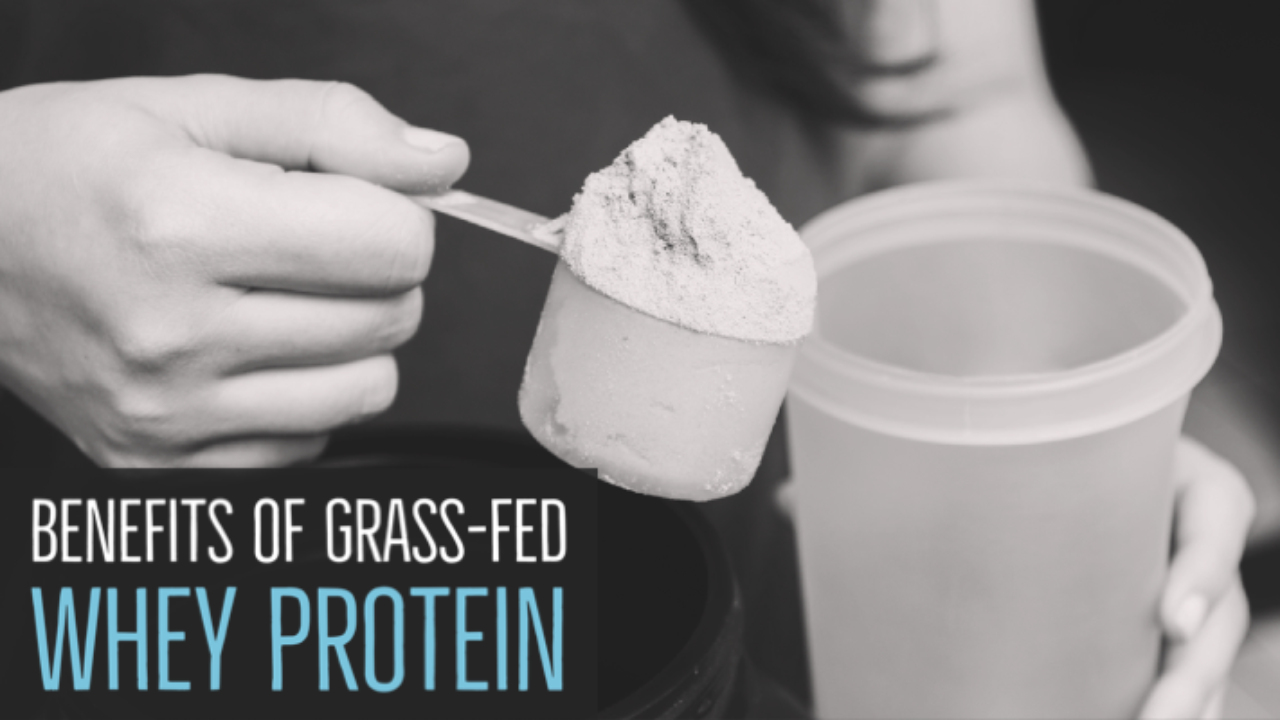FOOD
Why Grass-Fed Whey Protein is a Top Choice for Athletes

In the world of athletic performance, every edge counts. Athletes constantly seek ways to optimize their training, recovery, and overall well-being. Among the many tools in their arsenal, grass-fed whey protein has emerged as a popular and potent choice. But what exactly is it, and why are athletes increasingly turning to this specific type of whey protein?
What is Whey Protein?
Whey protein is a naturally occurring protein found in milk. During cheese production, whey separates from the curds as a liquid byproduct. This liquid whey is then processed and concentrated into a powder form, becoming the familiar whey protein supplement widely used by athletes and fitness enthusiasts.
There are two main types of whey protein:
- Concentrate (WPC): This is the most common and affordable form of whey protein. It contains about 70-80% protein, with some lactose and fat.
- Isolate (WPI): This undergoes further processing to remove lactose and fat, resulting in a purer protein source with a higher protein content (around 90%).
Both types offer benefits, but for athletes seeking a more nutrient-rich and potentially performance-enhancing option, grass-fed whey protein takes center stage.
Grass-Fed Vs Whey protein
The key distinction lies in the diet of the cows from which the whey is derived. Cows raised on a purely grass-fed diet produce milk with a different nutritional profile compared to those fed conventional grain-based diets.
Here’s how grass-fed whey protein stands out:
- Higher Levels of Conjugated Linoleic Acid (CLA): CLA is a fatty acid linked to potential benefits like improved body composition and reduced inflammation. Grass-fed milk naturally contains more CLA than grain-fed milk, translating to higher CLA content in the whey protein derived from it.
- Richer in Omega-3 Fatty Acids: Grass-fed cows produce milk with higher levels of omega-3 fatty acids, known for their anti-inflammatory properties and potential role in promoting muscle recovery.
- Enhanced Levels of Vitamins and Minerals: Grass-fed milk contains a broader spectrum of vitamins and minerals, including Vitamin A, Vitamin E, and antioxidants like glutathione. These can contribute to overall health and potentially support immune function, crucial for athletes.
- Reduced Antibiotic and Hormone Exposure: In some conventional dairy farming practices, cows may receive antibiotics and hormones. Grass-fed practices often limit or eliminate these, resulting in a potentially cleaner and purer whey protein source.
Benefits for Athletes
The unique nutritional profile of grass-fed whey protein translates to several potential benefits for athletes:
- Muscle Growth and Repair: Whey protein is a complete protein, meaning it contains all nine essential amino acids the body needs to build and repair muscle tissue. This makes it an ideal post-workout supplement to support muscle protein synthesis, especially after strength training.
- Enhanced Recovery: The anti-inflammatory properties of CLA and omega-3s in grass-fed whey protein can potentially aid in reducing muscle soreness and inflammation after intense workouts. This can lead to faster recovery times and a quicker return to training.
- Improved Immune Function: The additional vitamin and mineral content of grass-fed whey protein can potentially support a healthy immune system, crucial for athletes who are more susceptible to illness due to the physical demands of training and competition.
- Lean Body Composition: CLA in grass-fed whey protein may play a role in promoting fat loss and supporting a leaner body composition, beneficial for athletes in sports with weight class requirements or those seeking to optimize performance-to-weight ratios.
Choosing the Right Grass-Fed Whey Protein
With the growing popularity of grass-fed whey protein, a variety of brands and options are available. Here are some factors to consider when making your choice:
- Source: Look for brands that clearly state their cows are 100% grass-fed and pasture-raised.
- Protein Content: Choose a product with a high protein content (ideally above 80%).
- Ingredient List: Opt for products with minimal additional ingredients or fillers.
- Third-Party Testing: Look for brands that provide third-party testing results to ensure purity and safety.
An excellent gift choice
For the athlete in your life, grass-fed whey protein can also be a thoughtful and unique custom gift. Consider creating a personalized protein powder gift basket. Combine a high-quality grass-fed whey protein powder with their favorite flavorings, a reusable shaker bottle, and perhaps some healthy snack options like nuts or dried fruit. This custom gift demonstrates your support for their athletic goals and provides them with the tools to fuel their training.
Optimizing Athletic Performance
While grass-fed whey protein offers valuable benefits, it’s important to remember it’s just one piece of the puzzle for optimal athletic performance. A healthy diet rich in whole foods, adequate sleep, and a well-structured training program remain essential.
Conclusion
Grass-fed whey protein provides athletes with a unique and potentially performance-enhancing nutritional profile. Its higher CLA content, omega-3 fatty acids, and broader spectrum of vitamins and minerals may contribute to muscle growth and repair, enhanced recovery, improved immune function, and lean body composition. When combined with a healthy lifestyle and proper training program, grass-fed whey protein can be a valuable tool in an athlete’s quest for peak performance.
-

 Tech1 year ago
Tech1 year agoHow to Use a Temporary Number for WhatsApp
-

 Business2 years ago
Business2 years agoSepatuindonesia.com | Best Online Store in Indonesia
-

 Social Media2 years ago
Social Media2 years agoThe Best Methods to Download TikTok Videos Using SnapTik
-

 Technology2 years ago
Technology2 years agoTop High Paying Affiliate Programs
-

 Tech12 months ago
Tech12 months agoUnderstanding thejavasea.me Leaks Aio-TLP: A Comprehensive Guide
-

 FOOD1 year ago
FOOD1 year agoHow to Identify Pure Desi Ghee? Ultimate Guidelines for Purchasing Authentic Ghee Online
-

 Instagram3 years ago
Instagram3 years agoFree Instagram Auto Follower Without Login
-

 Instagram3 years ago
Instagram3 years agoFree Instagram Follower Without Login





















